How Criminal Justice Systems Create Crime: Labelling and Marxism
VerifiedAdded on 2023/06/18
|5
|696
|384
Essay
AI Summary
This essay explores the concept of crime creation by the criminal justice system through the lens of labelling theory and Marxist criminology. Labelling theory posits that society's labels, whether positive or negative, influence an individual's behavior and self-perception, with factors like race, ethnicity, religion, and gender playing a role. Marxist criminology, on the other hand, focuses on the political and economic structures that define crime and social order, emphasizing power dynamics and social control. While labelling theory examines how individuals are tagged as criminals, Marxist criminology investigates the broader societal forces that shape criminal definitions and enforcement. Both theories acknowledge the role of society in defining crime, but differ in their focus: labelling theory on the individual's experience and Marxist criminology on the structural causes of crime. Desklib offers a platform to find more such essays and solved assignments.
1 out of 5
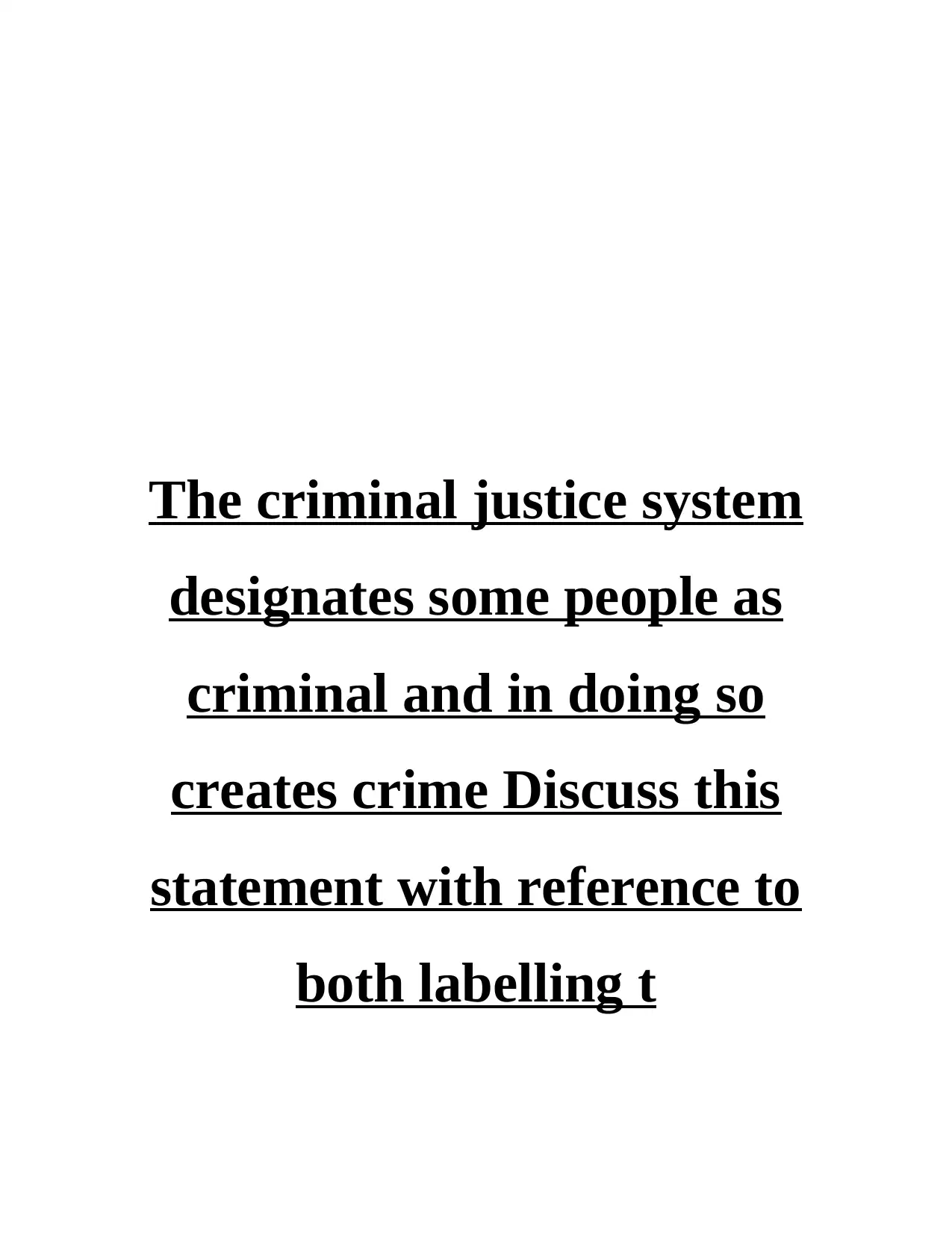
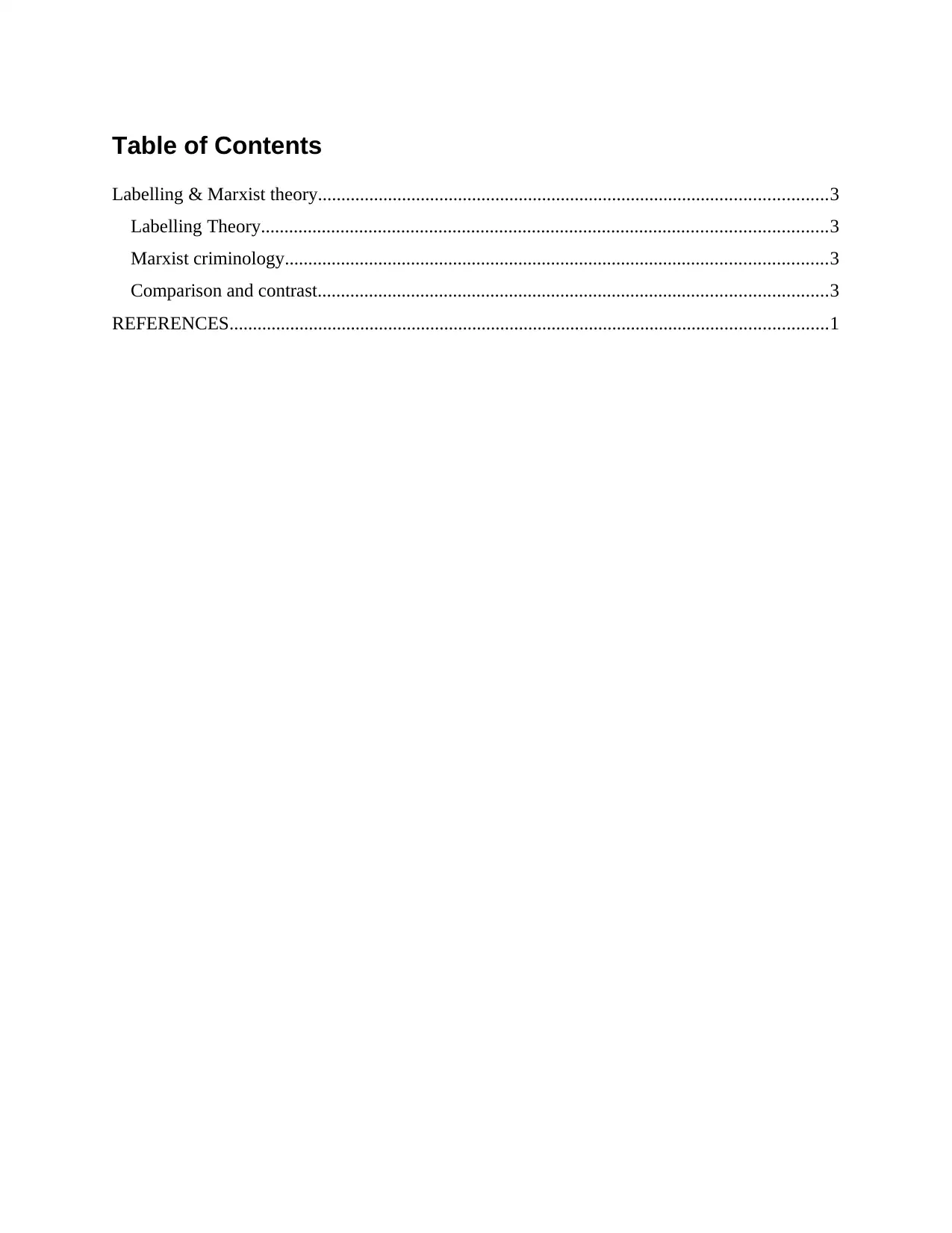
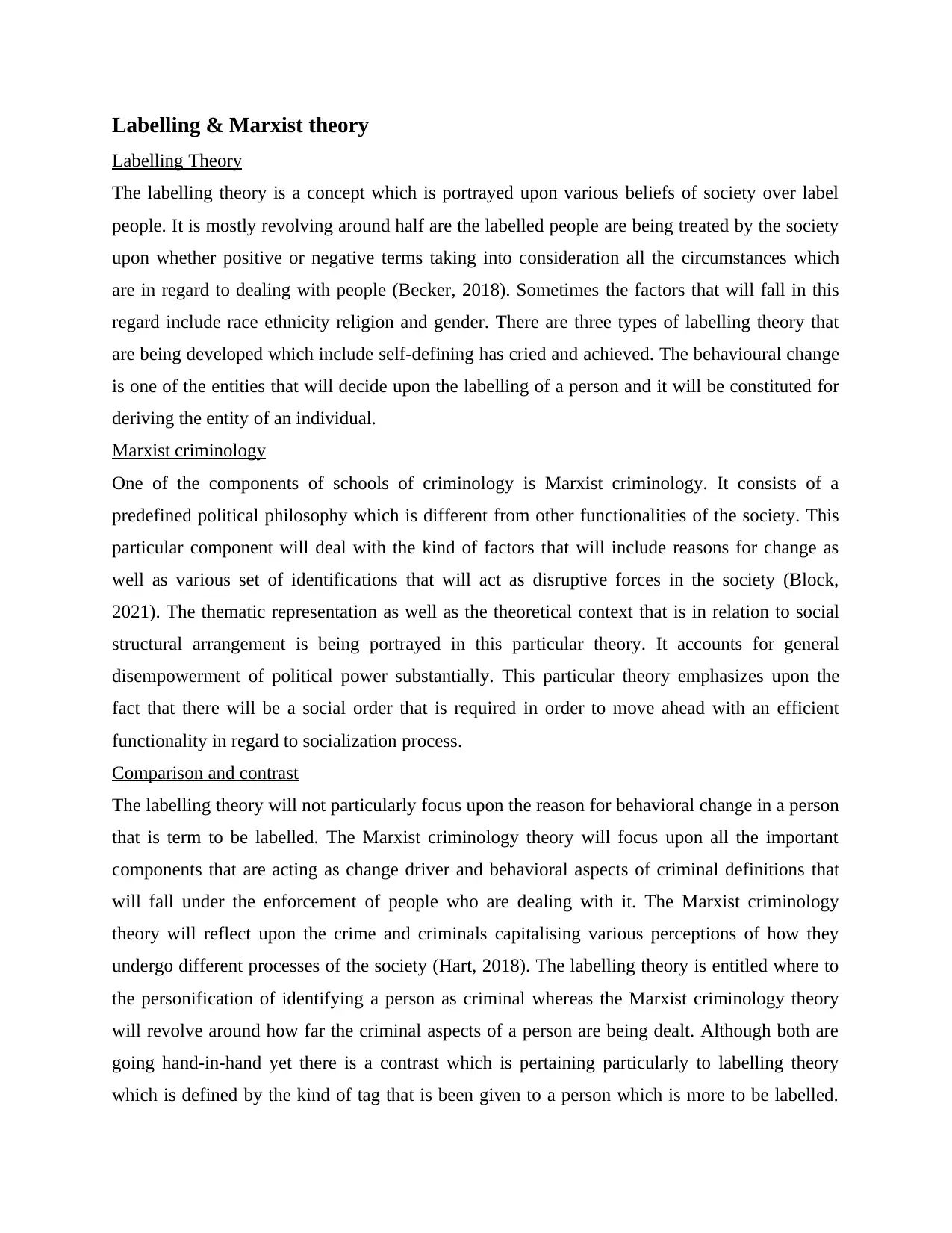

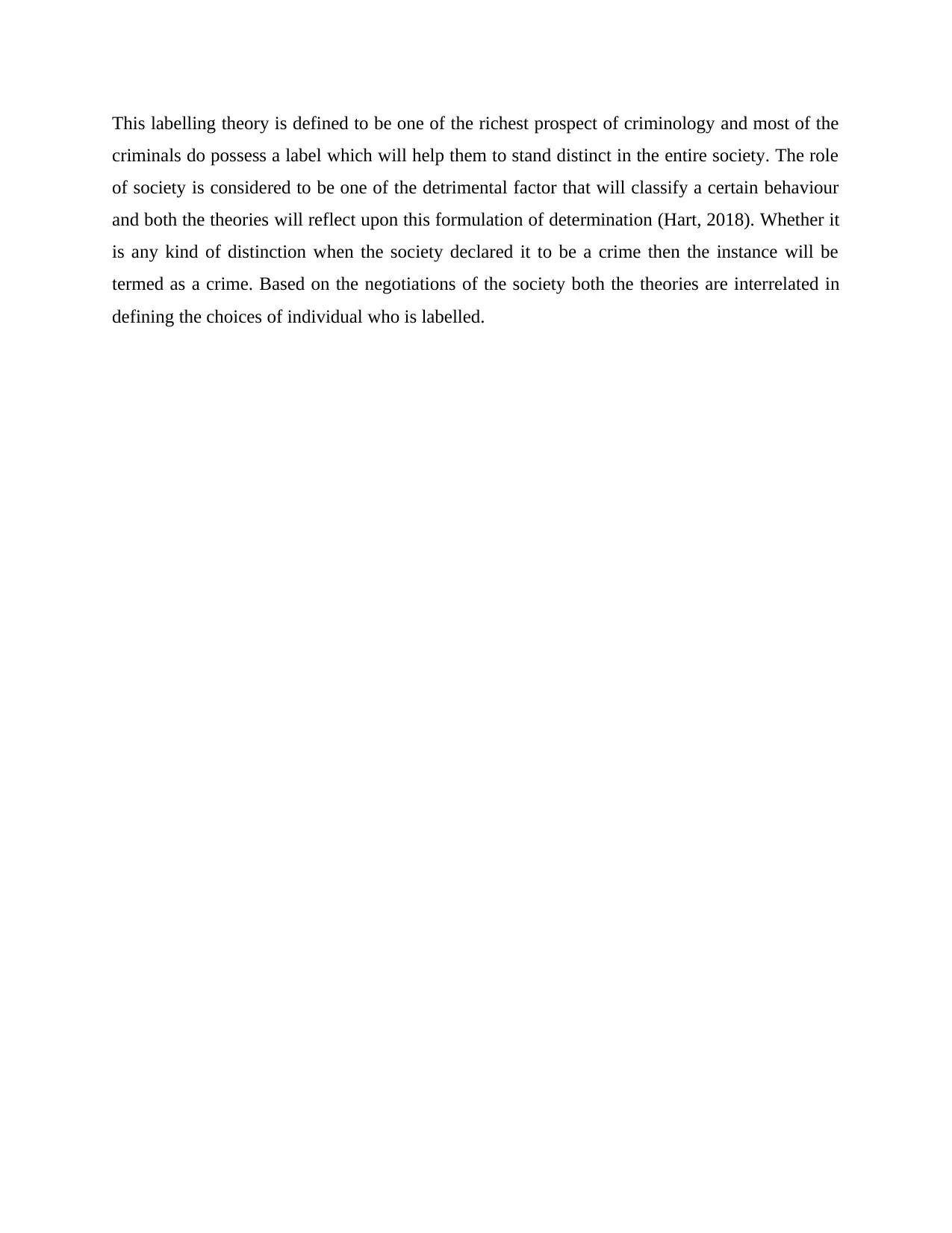
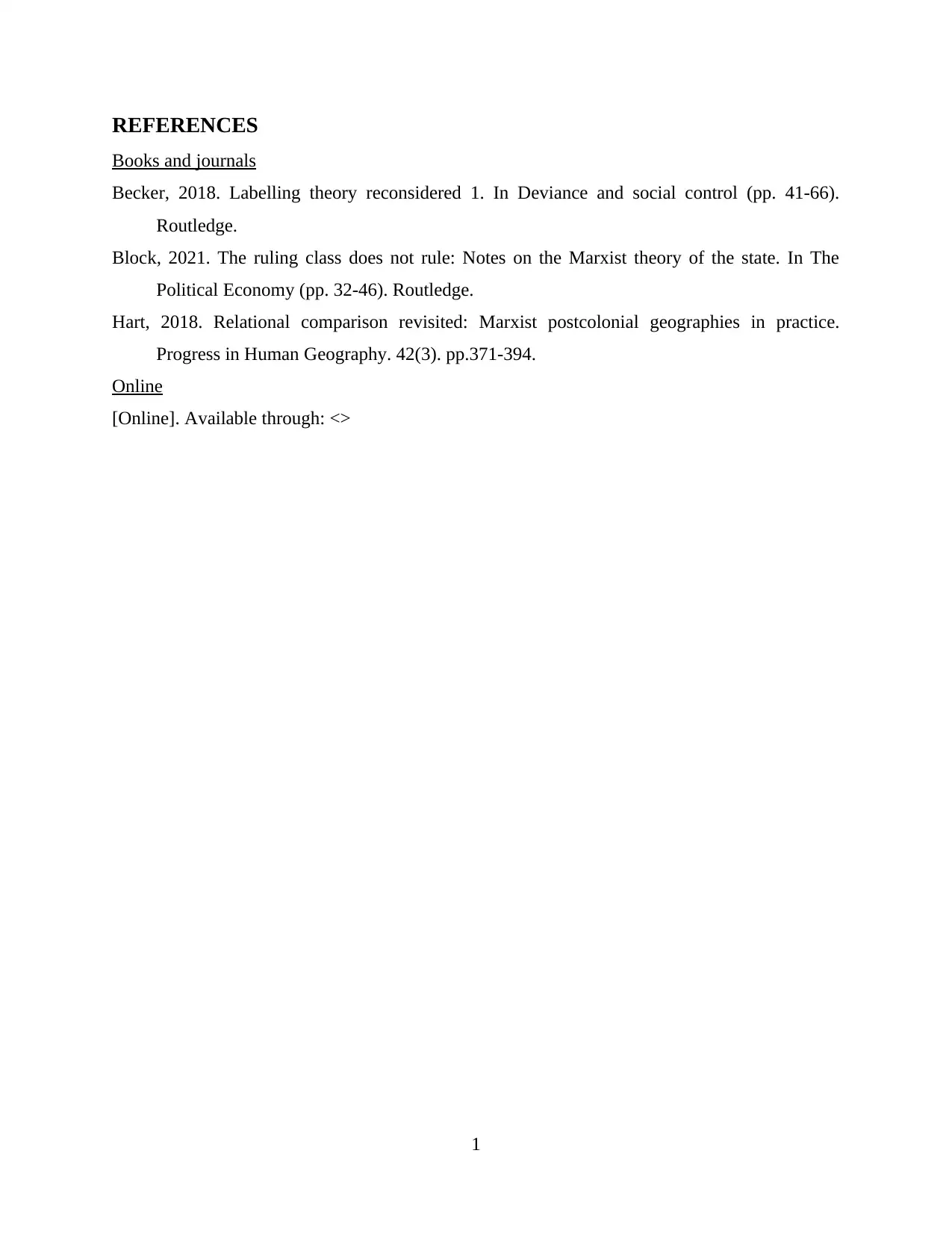






![[object Object]](/_next/static/media/star-bottom.7253800d.svg)